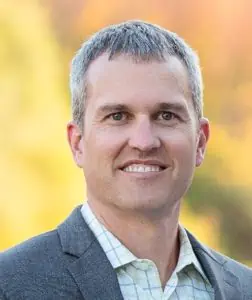Understanding the Difference Between Canker Sores and Cold Sores
Posted October 19, 2024 by Dr. Brian Evans

When it comes to oral health, two common but often confused conditions are canker sores and cold sores. While they may seem similar, their cause, appearance, and treatment differ. Understanding these differences can help you better manage your oral health and know when to seek professional care at our dental office in Reno.
What Are Canker Sores?
Canker sores, also known as aphthous ulcers, are small, painful ulcers that appear inside the mouth or on the inside of the cheeks, lips, or tongue. They are not contagious and typically heal independently within one to two weeks.
Key Points About Canker Sores:
- Location: Always found inside the mouth.
- Appearance: Small, round, and usually white or yellow with a red border.
- Cause: Can be triggered by stress, minor mouth injuries, certain foods, or vitamin deficiencies.
- Treatment: Over-the-counter topical treatments can reduce pain. Avoiding spicy or acidic foods and practicing good oral hygiene can also help.
While canker sores usually resolve on their own, persistent or unusually large sores may require attention from a dentist. If you experience frequent canker sores, it might indicate an underlying condition that needs further investigation.
What Are Cold Sores?
On the other hand, cold sores are caused by the herpes simplex virus (HSV-1). Unlike canker sores, cold sores are highly contagious and often appear outside the mouth, particularly on the lips. They start as blisters and eventually break open, forming a crust before they heal. Cold sores typically heal within two to four weeks.
Key Points About Cold Sores:
- Location: Commonly appears on the lips or around the mouth but can also occur inside the nose or on the chin.
- Appearance: Begin as fluid-filled blisters that turn into open sores with a yellow crust.
- Cause: Triggered by the herpes simplex virus and can be activated by stress, sun exposure, or a weakened immune system.
- Treatment: Antiviral creams or oral medications can help speed healing and reduce outbreaks.
Because a virus causes cold sores, they can recur over time, especially during stress or illness. To prevent spreading the virus, it’s important to avoid close contact with others when you have an active cold sore.
How to Tell the Difference
It’s easy to confuse canker sores with cold sores since both can be painful and affect your daily life. However, paying attention to their location and appearance lets you usually tell which one you’re dealing with. Look for these key differences:
- Canker sores are always inside the mouth and are not contagious.
- Cold sores typically occur outside the mouth and are contagious.
If you’re unsure or your sores don’t heal within a few weeks, it’s a good idea to consult a dentist. A professional can help determine the cause and recommend appropriate treatment to relieve your symptoms.
When to See a Dentist
While canker and cold sores are generally harmless, they can be uncomfortable and sometimes indicate a more serious issue. If you experience frequent outbreaks, severe pain, or sores that don’t heal, it’s time to visit a dentist. A dentist can offer:
- Diagnosis: Identifying whether you have a canker sore or cold sore.
- Treatment: Providing topical treatments, antiviral medications, or advice on managing triggers.
- Preventive Care: Helping you manage underlying conditions that may be causing frequent sores.
By understanding the differences between canker sores and cold sores, you can take better care of your oral health and know when to seek professional help.
If you’re looking for a dentist in Reno, our office is here to help. We’re just a call away if you need advice on managing canker sores, cold sores, or other oral health concerns. Contact us today to schedule an appointment and take the next step toward a healthier smile.



